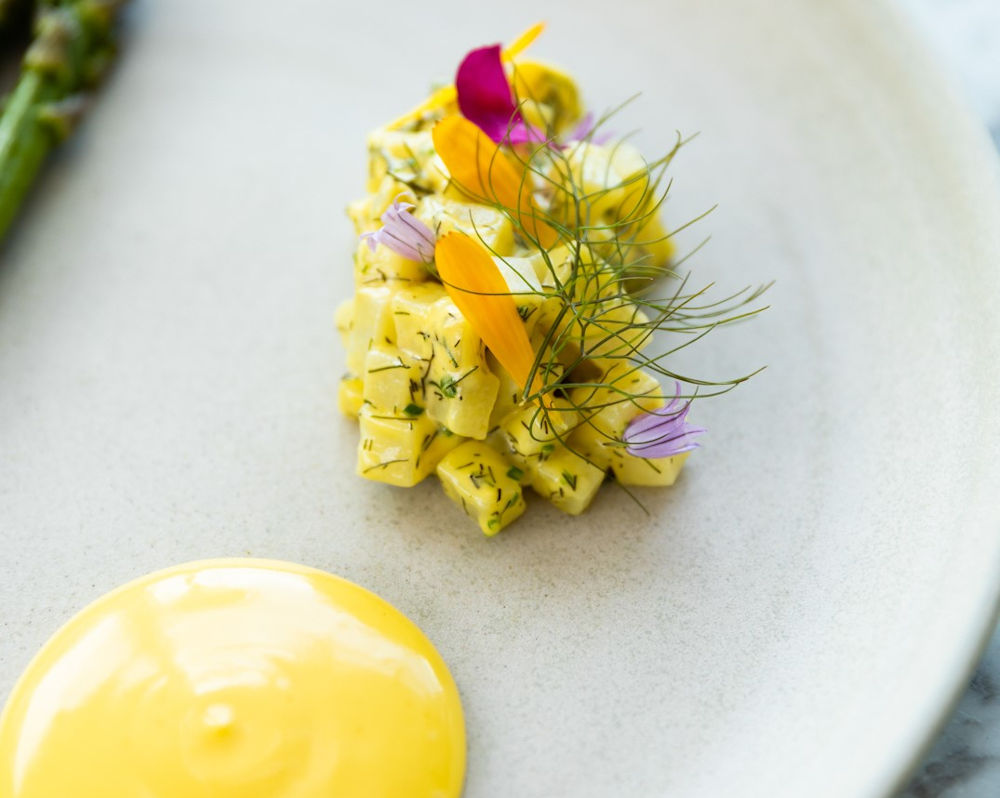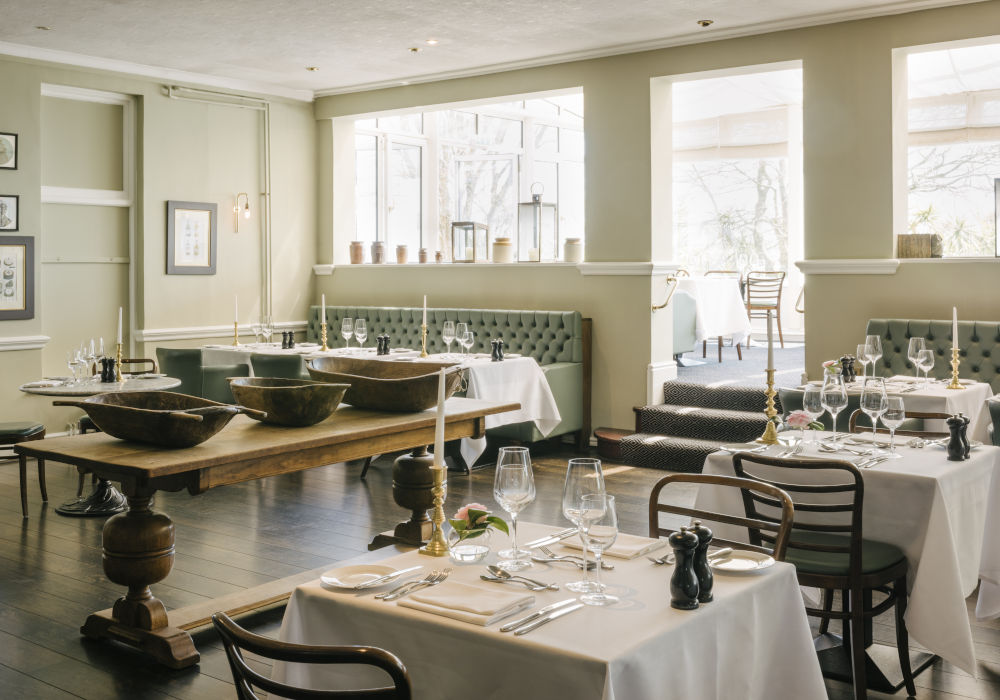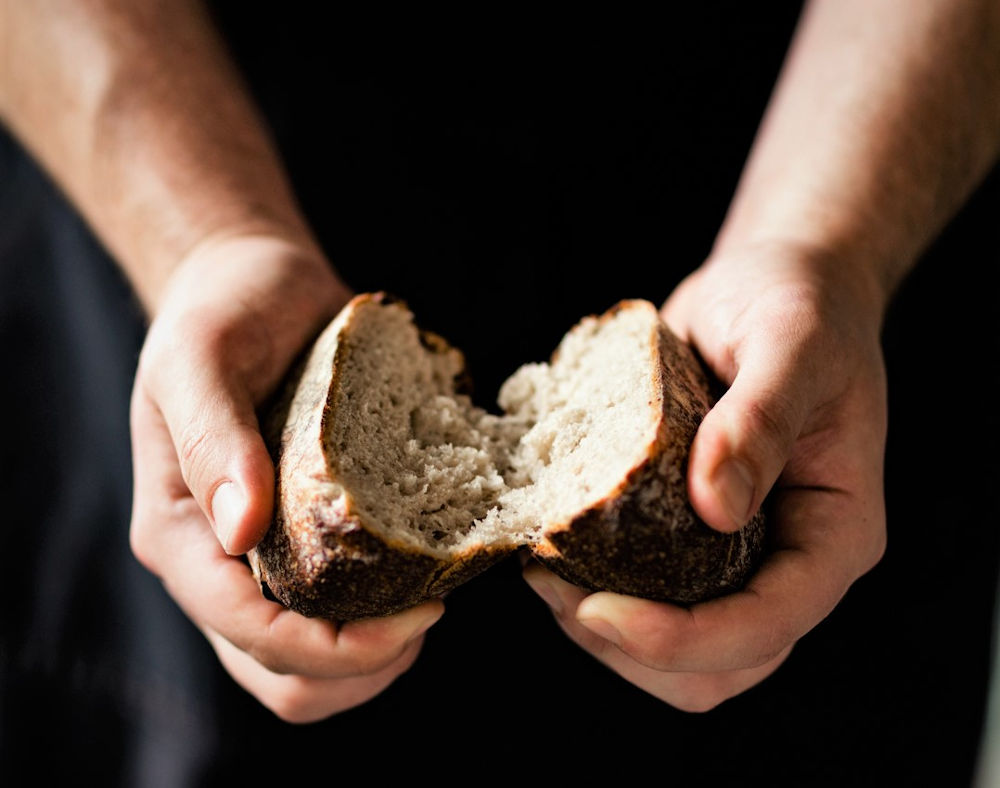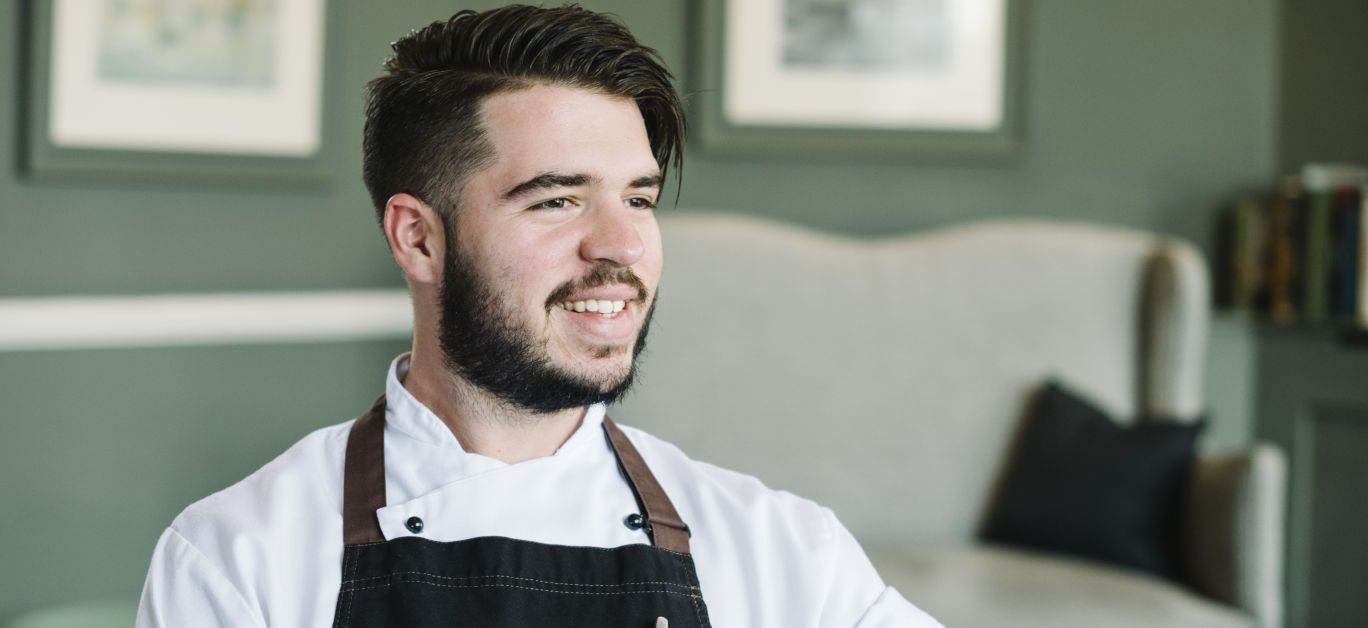Cornishman Aiden Blakely-May is head chef at Rastella, the 3 AA Rosette restaurant in Falmouth’s Merchant’s Manor hotel where he took over the helm in March 2022 after starting as sous chef in 2017. He was previously in the kitchen at Samphire restaurant at The Headland on Fistral Beach, where he worked his way up over six years.
His dishes combine home grown flavours with a lovingly chosen wine list and ingredients include locally-sourced fish caught using the most sustainable methods possible, Terras Duck sustainably bred on a free-range, small-scale farm in the Fal Valley and greens grown in a market garden by a sixth-generation farmer and former Rick Stein head chef. He says of his menu: ‘The food on your plate has a story, and we can tell you every step of it.’
We caught up with the chef to learn all about his cooking style, influences and why local is best.
Can you tell us a little bit about yourself, including where you are today, professionally, and what got you here?
I am currently the head chef at Rastella Restaurant, Merchants Manor. I have been here for five years now, starting off as a senior sous chef and progressed my way up. I made the decision to come back from London to return to my home county to find what was next for me professionally.
What or who inspired you to become a chef?
Tough one really. I grew up in the hospitality industry, my parents owned a pub for a big chunk of my upbringing. I think this is where the roots were planted for my future.

Who has been your biggest influence to get you to where you are today?
I’d have to say my very first head chef. He was the one who really lighted a fire and introduced me to life in the kitchen.
What’s your signature dish?
I would have to say my chocolate, coffee and yoghurt dessert. It sums me up perfectly, everything on that dish comes from my home county, Cornwall.
What are the most important considerations when crafting your menu?
Two things, my team and what season we are in. You are only ever as good as your team.
Do your personal preferences influence the menu at all?
I’d have to say yes. I’m a big believer in serving food I would like to eat. If me and my team don’t like the food we’re serving, we’ve got no chance.
How would you describe your cooking style?
Paired back and elegant. Super sustainable and seasonal, everything is on the plate for a reason.

Do you have a favourite time of year or set of ingredients that you look forward to working with?
For me that would have to be spring. The hedgerows start producing, and the smells of summer vegetables are around the corner.
What is your favourite ingredient to create with?
It would have to be our local vegetables. There’s nothing better than getting a call from one of our many loyal suppliers, telling me what’s just been dug up from the ground, then challenging myself and the team what’s the best way we can serve this incredible produce.
What would you be doing if you weren’t a chef?
I would probably be sat in an office somewhere, making use of my computer science degree.
What is your favourite dish to cook at home?
Definitely a Sunday roast. It’s always worth the effort and it’s a chance to invite the family round to catch up.
When are you happiest?
When a dish makes the transition from an idea to a stunning plated end product.
What is your favourite piece of kitchen equipment?
PacoJet.
When you’re not in the kitchen where can you be found?
You’ll often find me and my girlfriend on one of Cornwall’s picturesque beaches.

What’s your favourite takeaway or comfort food?
Indian/Asian Food. I love the flavours from that part of the world.
Where is your favourite place to dine?
Ynyshir, as it concentrates on what I believe to be the most important reason behind great food; maximum flavour.
What do you think is the most over-hyped food trend?
You know what, in the past year I’ve seen a lot of places use charcoal in food. Charcoal oils and emulsions etc. I find it incredibly bizarre. The worst I’ve seen is a charcoal burger bun. I can never get along with that idea for one second. Don’t get me wrong, I love cooking over fire, we do it at the restaurant seven nights a week, but to actually use charcoal in food production is a strange one for me.
What do your future plans entail?
To keep pushing on and developing our food. I am definitely a chef that loves a challenge.
How have the lockdown restrictions affected your work?
The biggest one for me is staffing. It wasn’t easy before the lockdowns to be honest with you. But since covid trying to get in quality staff has been my hardest challenge. The industry is really struggling with record low levels of staff.
What differences do you find working with local produce as opposed to non-local produce in terms of what you can create and flavour?
The difference is second to none. So much more flavour when you know it’s just been picked that morning. I get a real buzz out of knowing my farmers and working with them every day. It makes me respect their products hugely. It’s also the seasonal challenge I enjoy, working with what’s available at that time. Rather than just ordering in whatever you want whenever you want.

How do you go about menu planning? What’s the process from picking the ingredients to getting them fresh into the kitchen and into dishes?
My first stage is to look at the time of year. I then get into contact with my suppliers and make farm visits. I want to see what’s growing and what is coming up so I can incorporate it into the menu. Nature really writes the menu, we just fancy it up a bit.
How would you describe the food you create at Rastella to someone who’s never experienced your kind of food?
Flavour driven, elegant, super seasonal and local. My tasting menu is a 25-mile menu.
What’s your favourite flavour combination?
I have many. But what springs to mind right now is local ripe cherry tomatoes dressed in fresh dill. Simple and delicious.
What is the USP of your restaurant?
Our sustainability and locality of our food. My tasting menu is 95% Cornish. We even print our menus on recycled food waste.






















